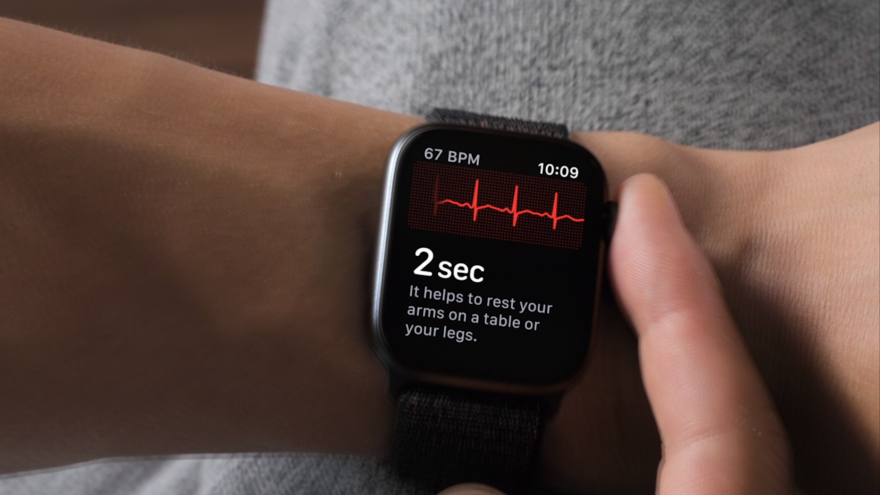You might not think Jacksonville’s medical community could get excited about a smartwatch but you’d be wrong.
When Apple’s next-generation smartwatch goes on sale on later this month it will include two new features with the potential to save lives.
The first is a heart monitor that goes beyond what’s available in current smartwatches. It will actually have the ability to perform an ECG similar to a single-lead electrocardiogram.
It will also detect Atrial Fibrillation (Afib), which is an abnormal heartbeat.

“What this does is allow us to diagnose this disease before it would be otherwise clinically apparent,” said Dr. Saumil Oza, the head of cardiology at St. Vincent’s Medical Center Riverside in Jacksonville.
Called the Apple Watch Series 4, the heart monitor feature can provide real-time data for doctors.
“I think this is all going to revolutionize the way we practice medicine because it’s allowing us to get beyond the snapshot of the patient we see when we’re in the office,” said Oza.
Electrodes built into the watch’s digital crown and the back crystal work together with the ECG app to read the heart’s electrical signals. By touching the watch’s digital crown, an ECG waveform is generated in 30 seconds, according to Apple.
The data is also automatically stored in the watch’s health app, which can be shared with the user’s doctor.
The watch will also alert the wearer if it detects unusually high or low heart rates that could be a sign of a serious condition.
The watch’s fall detection feature also has Oza excited. If a person falls the Apple Watch Series 4 will automatically call for help if the person doesn’t get up within a minute.
If the wearer remains unresponsive the watch will place an emergency call and a message will be sent to designated emergency contacts.
The smartwatch market is quickly advancing.
Smartwatch chipset maker Qualcomm has announced it has developed a new Snapdragon Wear 3100 chip for Google’s Wear OS smartwatch platform, which is expected to result in longer battery life and slimmer designs.
The next generation of Wear OS is expected to be unveiled this fall, according to Tech Radar, and by the end of the year several Wear OS smartwatches may have the new chipset.
However, while many Wear OS smartwatches have heart monitors, there’s been no word on whether the next-generation watches might approach the same level of health heart functionality that Apple says it’s achieved.
But either way, Oza says the future looks bright when it comes to smartwatches and health.
“We’re going to have many, many devices on the market that are able to monitor and really track all their vital signs, data and their movement,” said Oza.
Bill Bortzfield can be reached at bbortzfield@wjct.org, 904-358-6349 or on Twitter at @BortzInJax.





